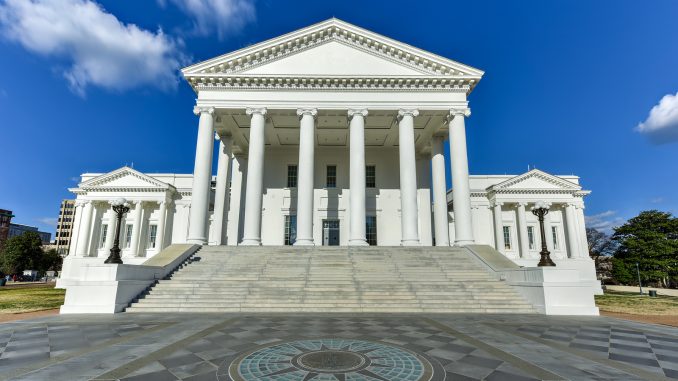
Virginia Releases October 2020 Revenue Report
as reported from the Office of the Governor
On a fiscal year-to-date basis, total revenue collections grew 6.7 percent, ahead of the annual forecast of a 1.8 percent decrease. General Fund revenue collections are down 2.7 percent from the previous year. Growth in sales and use taxes and recordation tax collections offset the expected decline in payroll withholding.
The Joint Advisory Board of Economists (JABE) met November 4 to assess recent economic developments and the economic outlook for the current and next biennium. The Governor’s Advisory Council on Revenue Estimates (GACRE) will meet on November 23 to evaluate both the JABE economic recommendations and revenue collections through October. GACRE members’ recommendations will be incorporated into the General Fund revenue forecast to be released on December 16 when the Governor meets with the money committees of the General Assembly.
Governor Northam Signs Revised State Budget
as reported from the Office of the Governor
Governor Ralph Northam signed House Bill 5005, Virginia’s revised biennial budget. The Governor called the General Assembly into special session on August 18 and has worked with legislative leaders to enact a spending plan that he believes protects key priorities, preserves the Commonwealth’s financial options, and addresses critical challenges that Virginians are facing amid the ongoing COVID-19 pandemic.
The signed budget finalizes previously announced funding allocations that Virginia received under the federal Coronavirus Aid, Relief, and Economic Security (CARES) Act, including:
- Vaccination Program: $22 million for the Virginia Department of Health’s vaccination preparation and planning through the end of 2020
- K-12 Schools: $220 million for COVID-19 preparedness and response efforts in K-12 public schools, with all 132 school districts receiving at least $100,000
- Higher Education: $116 million to support ongoing COVID-19 response at public colleges, universities, and medical schools and $22 million for the State Council of Higher Education for Virginia to provide payments to private institutions of higher education
- Child Care: $65.8 million to increase access to child care and continue child care incentive grant program established in April
- Small Business Assistance: $70 million to establish the Rebuild VA economic recovery fund providing grants to small businesses and nonprofit organizations impacted by the pandemic and $30 million in additional funds to continue the program
- Broadband Accessibility: $30 million to fast-track broadband projects in underserved localities
- Home Health Workers: $73 million to provide hazard pay to home health personal attendants who served high-risk populations during the early months of the pandemic
- Workforce Training for Unemployed Virginians: $30 million to established the Re-Employing Virginians initiative providing scholarships to individuals who enroll in programs in high-demand fields
- Rent and Mortgage Relief: $12 million to expand the Virginia Rent and Mortgage Relief Program launched in June
- Food Banks: $7 million to help Virginia food banks meet increased demand for food assistance
- Medicaid Day Support Providers: $25 million to fund monthly retainer payments for day support programs that provide services for Virginians with developmental disabilities.
- Free Clinics: $3 million to reimburse members of the Virginia Association of Free and Charitable Clinics for COVID-19 expenses
If you have any questions, please feel free to submit them to Corey Clayborne, FAIA at cclayborne@aiava.org
